Displaying 71-80 of 893 results
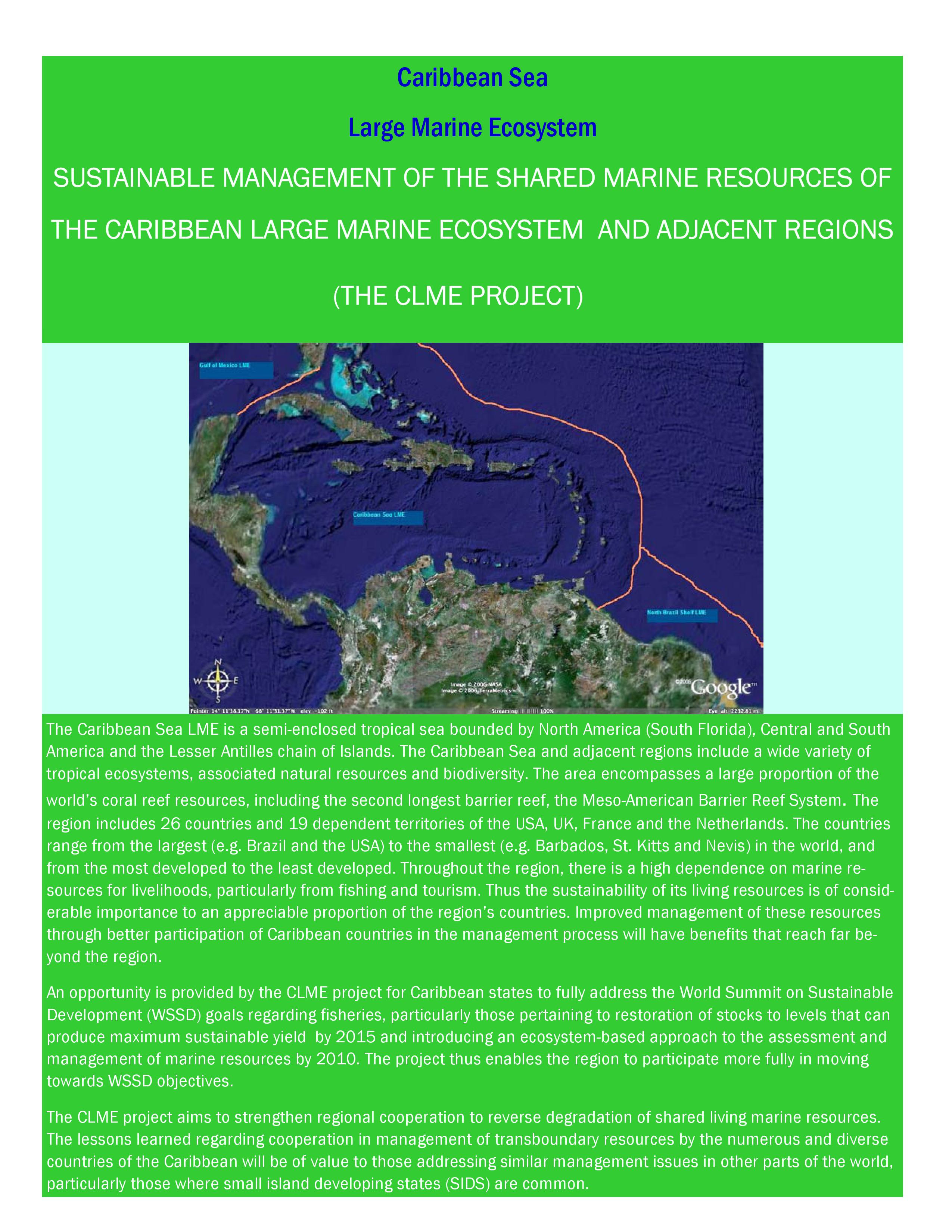
Caribbean Sea Large Marine Ecosystem – Sustainable Management of The Shared Marine Resources of The Caribbean Large Marine Ecosystem and Adjacent Regions
The CLME project responds to the need cited by key decision-makers for attention to the management of shared marine resources in the Caribbean LME and adjacent regions and the call to provide mechanisms facilitating informed decision-making. Typically, the LME approach includes five modules that focus on different aspects of the ecosystem: (1) productivity, (2) fish and fisheries, (3) pollution and ecosystem health, (4) socio-economics, and (5) Governance.
 6
6


 Report issue
Report issue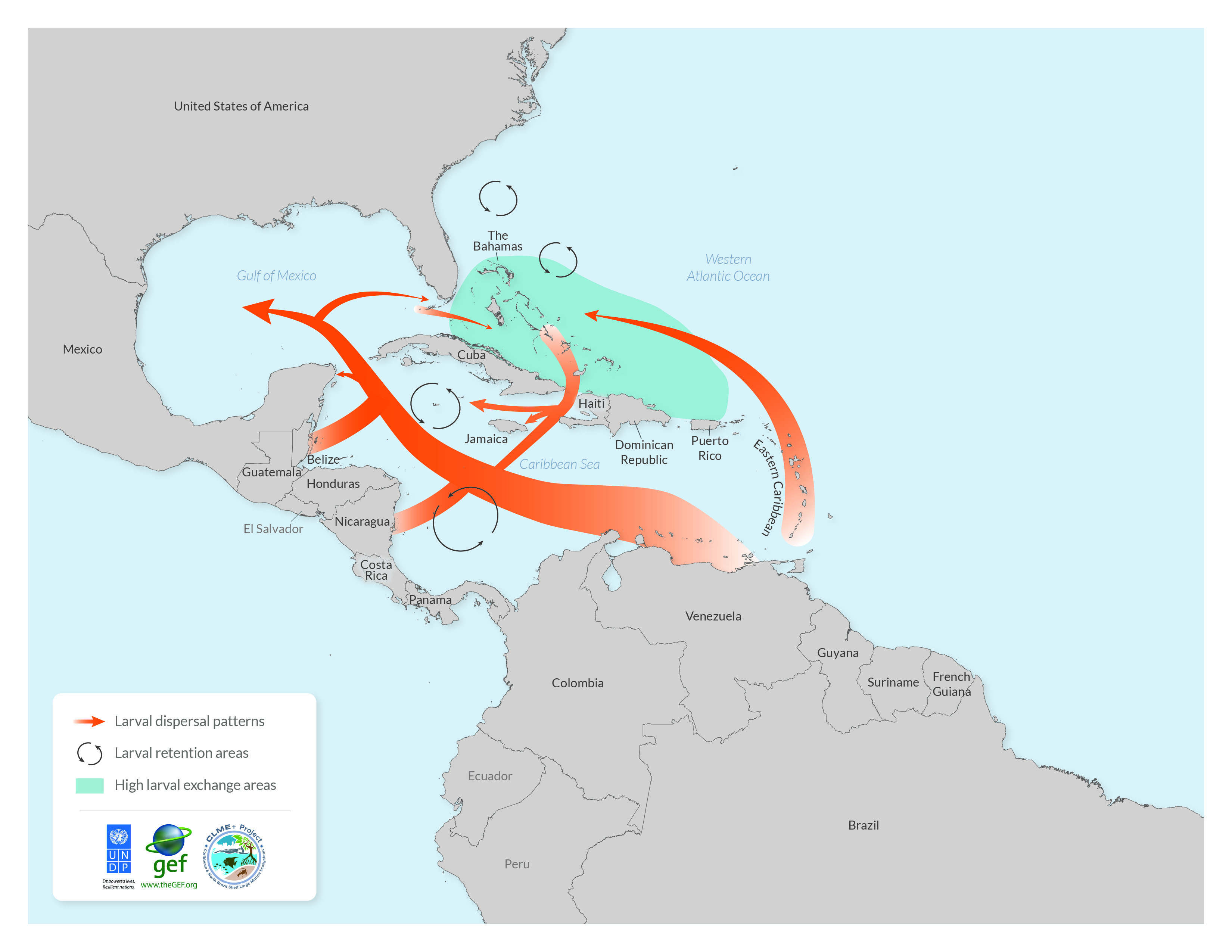
Caribbean Spiny Lobster Larval Dispersal Patterns and Larval Retention Areas Map
Larval drift determines the source of recruitment to the fishery, and it is thought that maintaining the lobster population at a particular site may depend on larvae arriving from distant localities. The drift of larvae across political boundaries creates a strong link among the countries that share this transboundary resource.
 15
15
 1
1

 Report issue
Report issue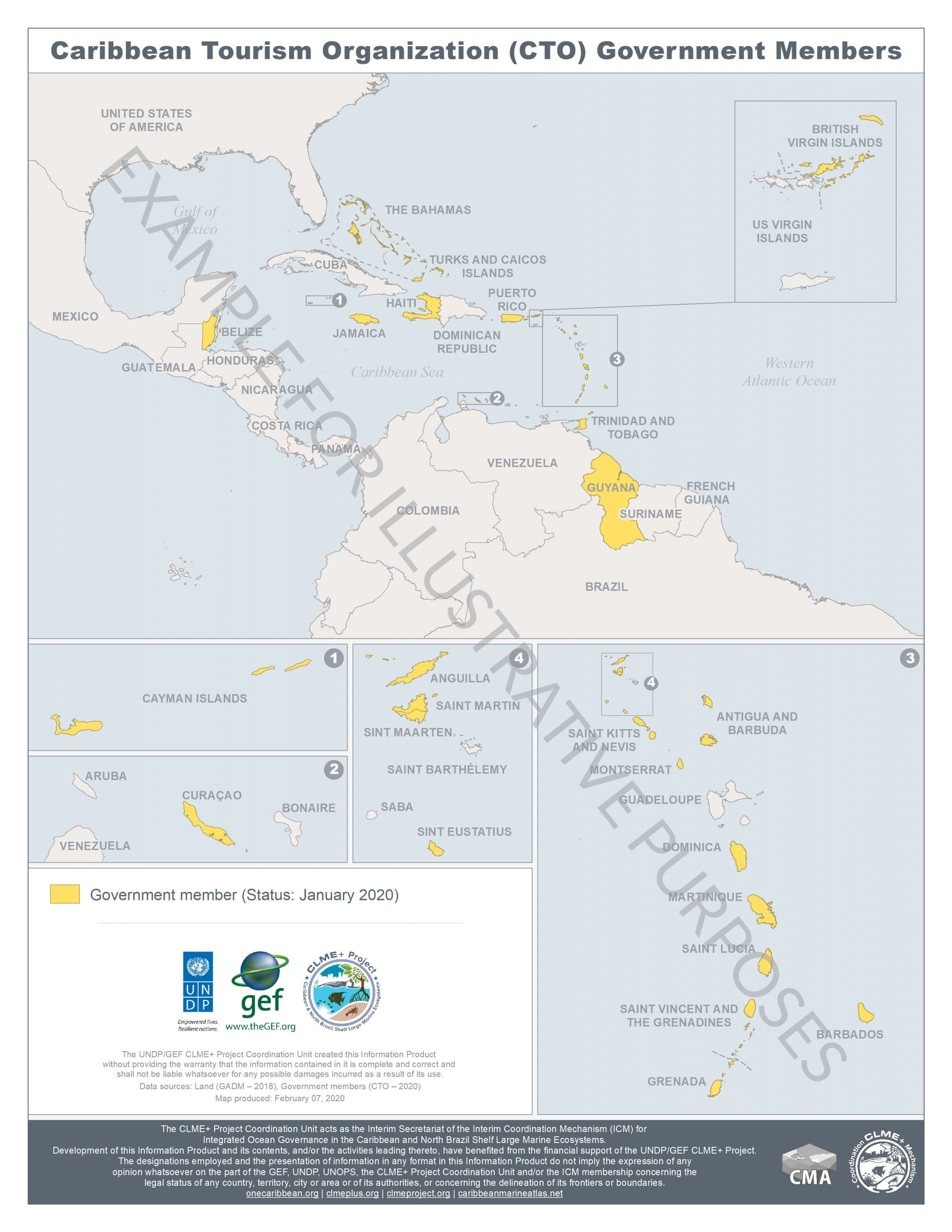
Caribbean Tourism Organization (CTO) Government Members
To date no abstract has been uploaded for this document
 6
6


 Report issue
Report issue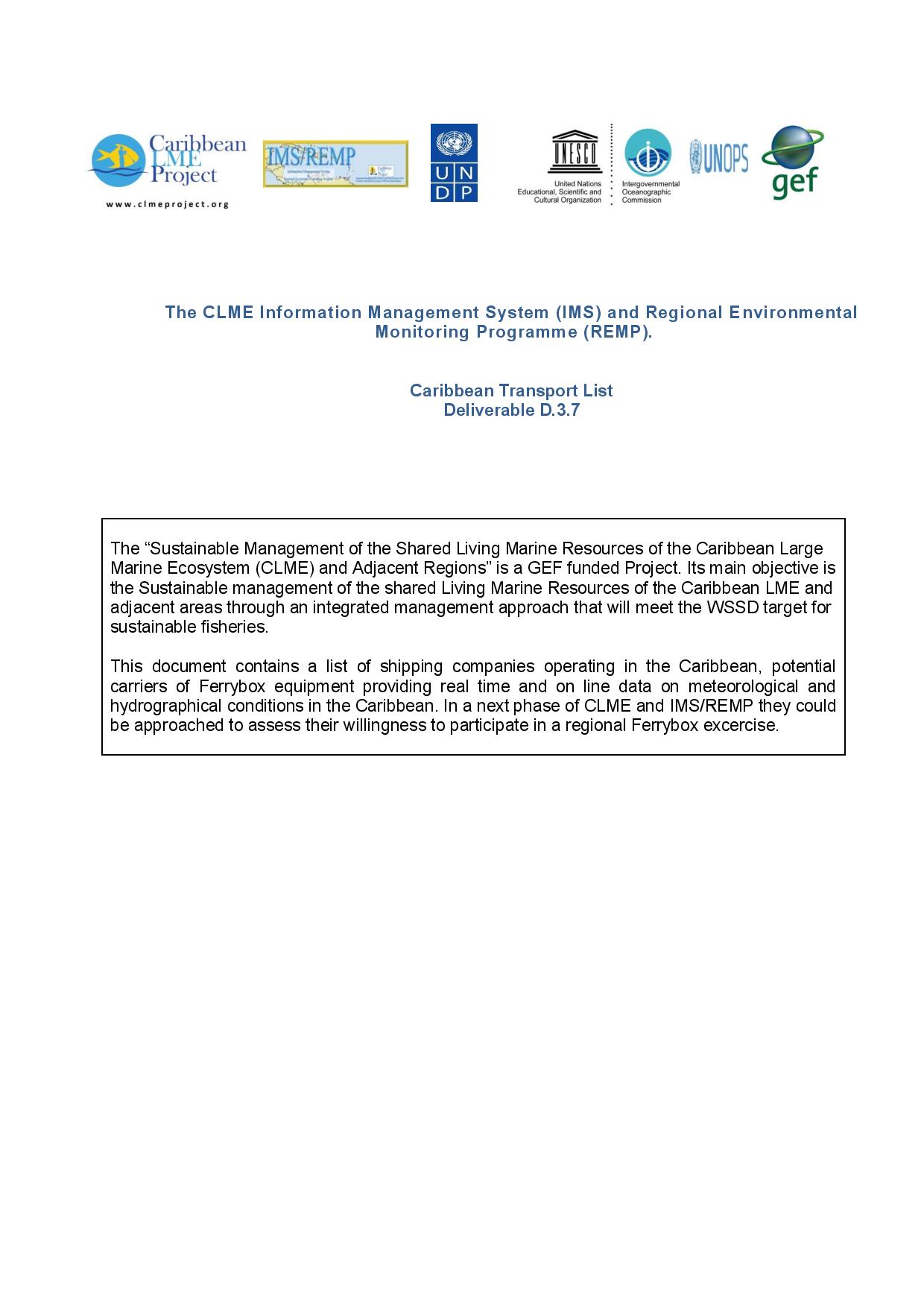
Caribbean Transport List Deliverable D.3.7
This document contains a list of shipping companies operating in the Caribbean, potential carriers of Ferrybox equipment providing real time and on line data on meteorological and hydrographical conditions in the Caribbean. In a next phase of CLME and IMS/REMP they could be approached to assess their willingness to participate in a regional Ferrybox excercise.
 4
4


 Report issue
Report issue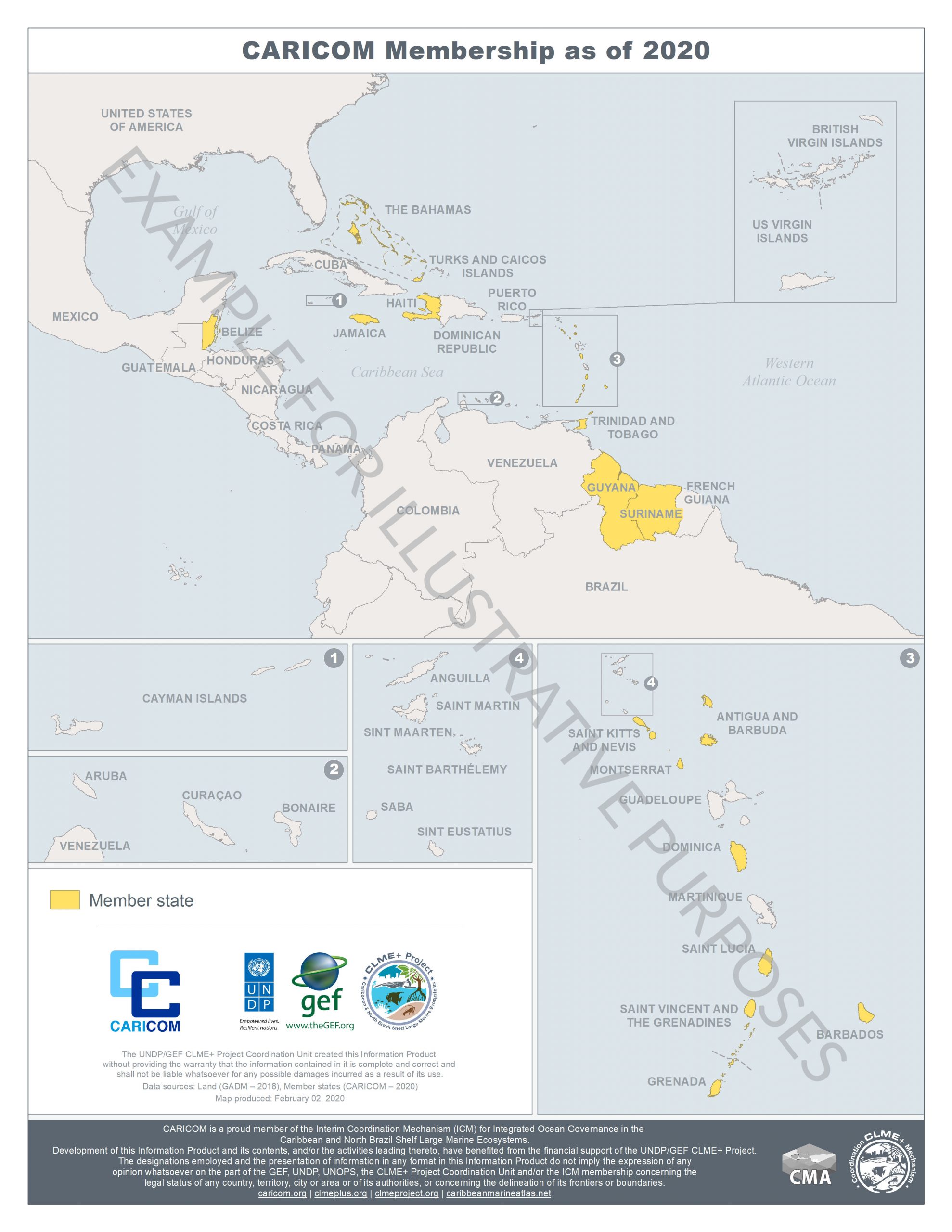
CARICOM Membership as of 2020
To date no abstract has been uploaded for this document
 4
4


 Report issue
Report issue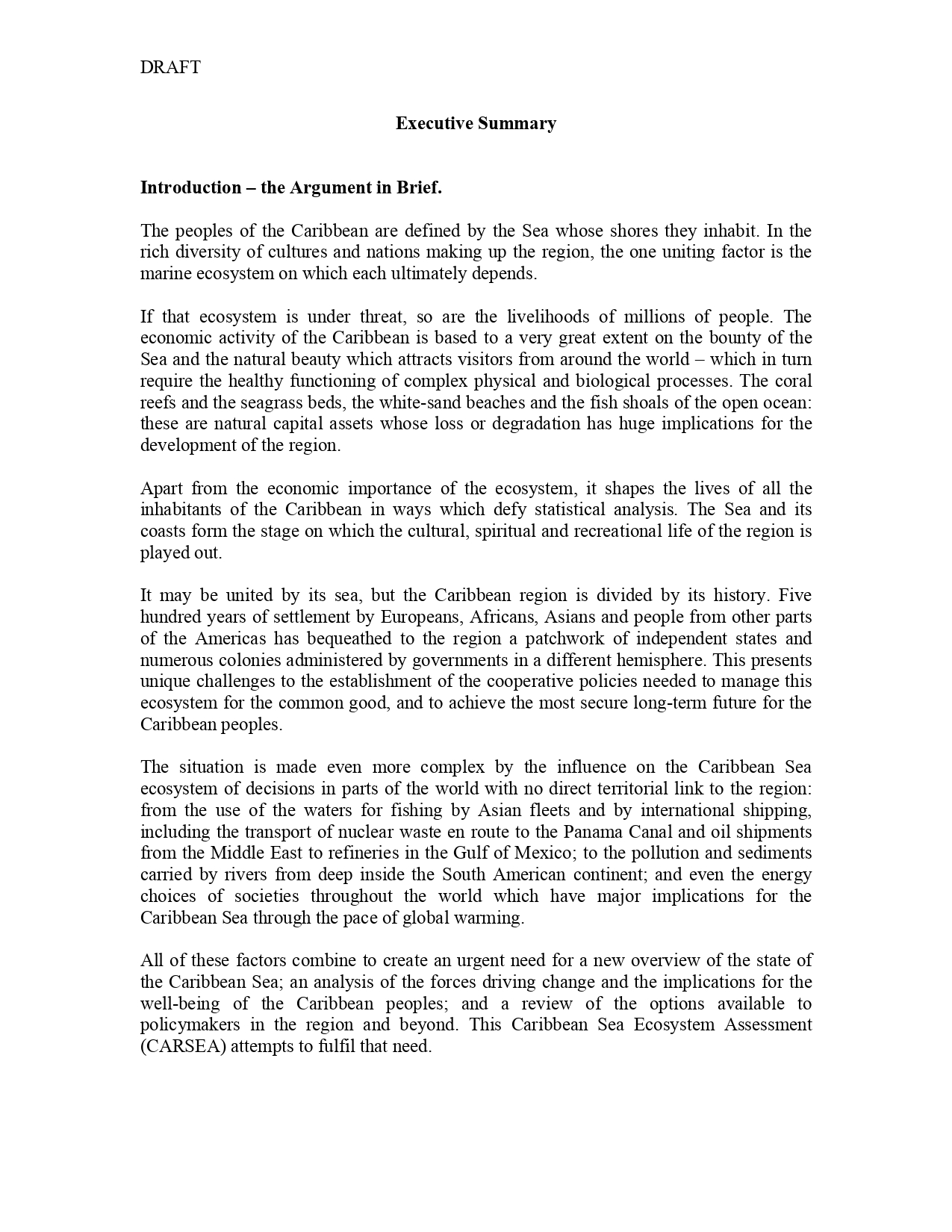
CARSEA Millenium Ecosystem Assessment Caribbean – Executive Summary
This project seeks to make use of the many but disparate research results that have accumulated on various aspects of the forces that are impacting the Caribbean Sea and the effects of those driving forces on the capacity of the ecosystem and on human well-being. The assessment will also establish a consolidated baseline of data and analysis relating to the condition of the Caribbean Sea, for use in periodic monitoring. It will also serve as an example of an approach to integrated assessment of ecosystems, and to inter-governmental/civic society/academic collaboration.
 9
9


 Report issue
Report issue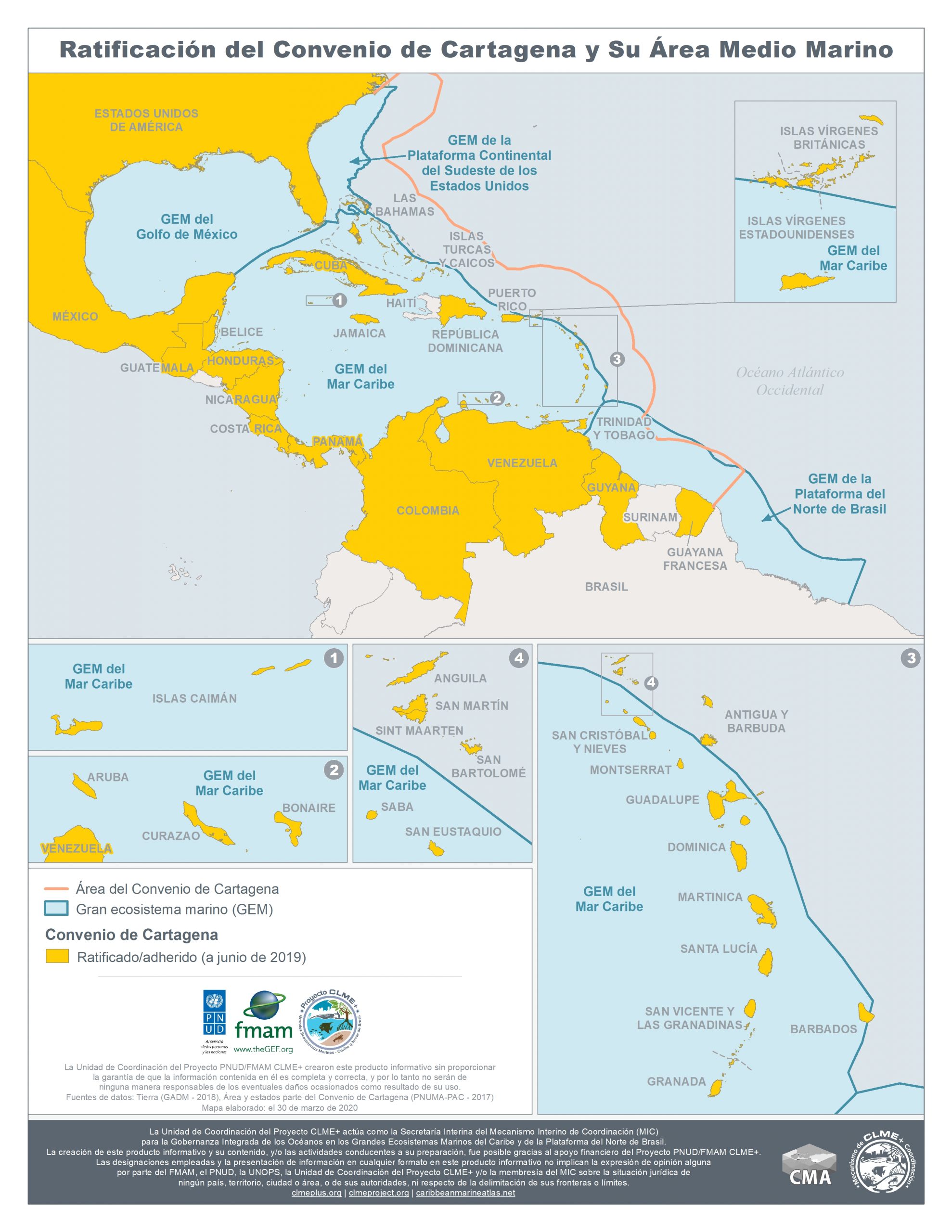
Cartagena Convention Ratification and Its Marine Environment Area
To date no abstract has been uploaded for this document
 4
4


 Report issue
Report issue
Cartagena Convention Ratification Status and Area as of 2019
To date no abstract has been uploaded for this document
 5
5


 Report issue
Report issue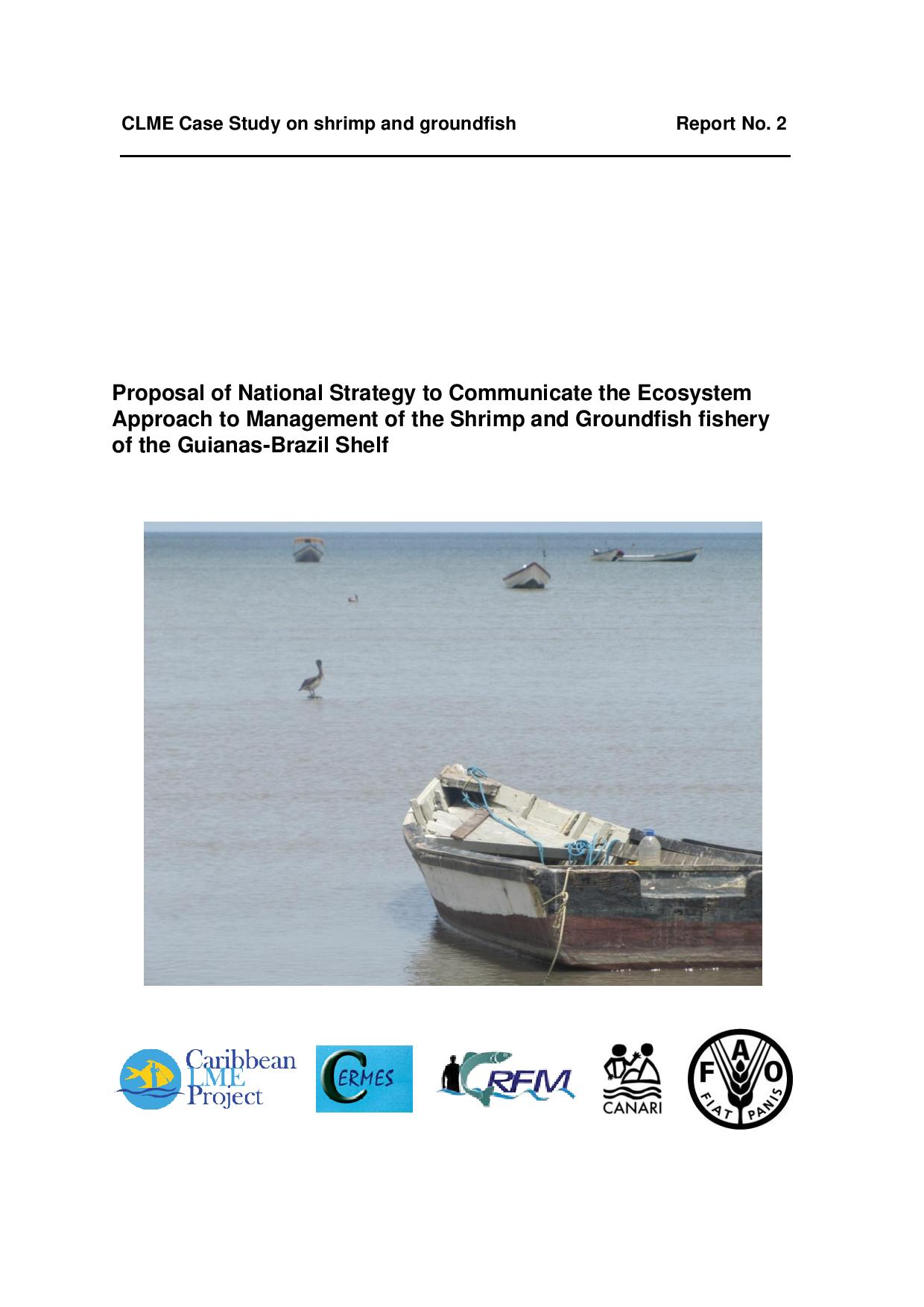
Case Study For The Shared Stocks Of The Shrimp And Groundfish Fishery Of The Guianas – Brazil Shelf Proposal of National Strategy to Communicate the Ecosystem Approach to Management of the Shrimp and Groundfish fishery of the Guianas -Brazil Shelf
The purpose of the case study on Shared Stocks of the Shrimp and Groundfish Fishery of the Guianas-Brazil Shelf was to fill knowledge gaps, contribute to the final CLME Transboundary Diagnostic Analysis and to the Strategic Action Programme (SAP), with priority actions to be undertaken to ensure the sustainability of the shrimp and groundfish fisheries. Another objective was to mainstream the Ecosystem Approach to Fisheries (EAF) in the management of shrimp and ground fish fisheries. Both objectives were addressed through assessments/studies at the national and regional levels, with the participation of stakeholders and following some of the key steps of the planning process within an EAF framework
 4
4


 Report issue
Report issue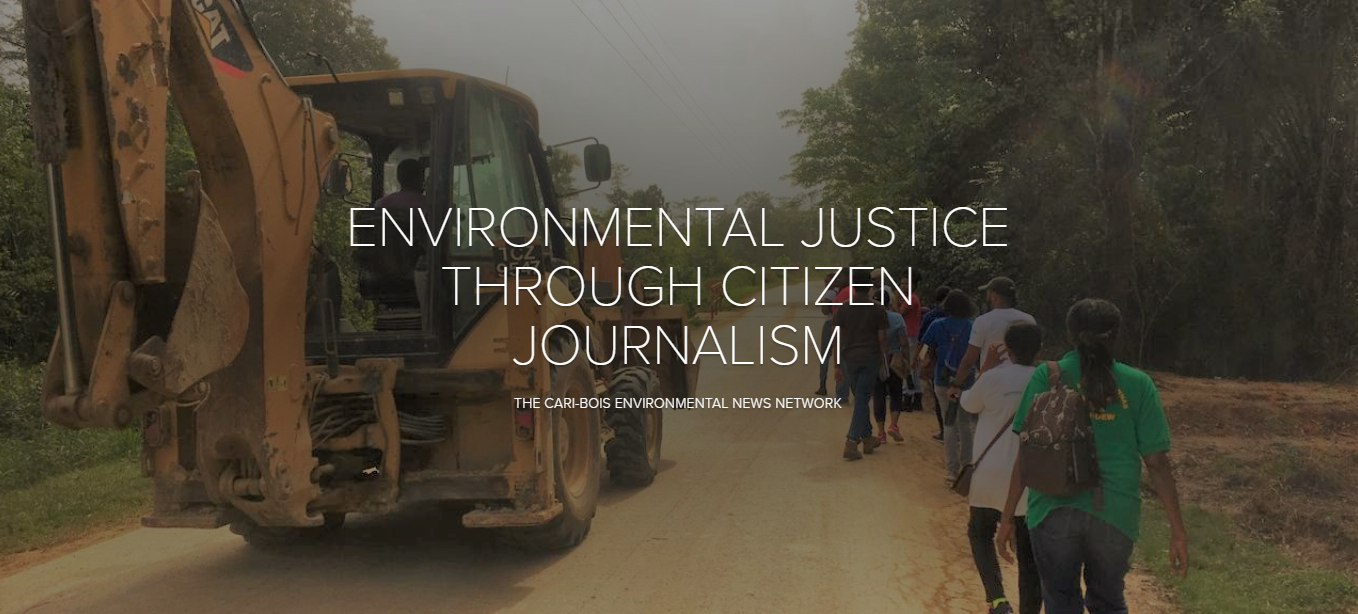
Case Study on environmental justice through citizen journalism: The Cari-Bois Environmental News Network
The Cropper Foundation has released a case study on environmental justice through citizen journalism. The case study was developed under the project ‘Powering Innovations in Civil Society and Enterprises for Sustainability in the Caribbean (PISCES)’ that aims to support innovative actions by civil society and coastal community small and micro-enterprises for conservation of marine and coastal biodiversity and development of sustainable and resilient livelihoods. This case study aims to document recent efforts undertaken in Trinidad and Tobago by The Cropper Foundation and a network of Civil Society Organisations (CSOs), in the development of a citizen journalism network as a mechanism for advocacy and communicating local knowledge, that can be applied to the conservation and management of marine protected areas/ marine managed areas (MPAs/MMAs) in Caribbean territories.
 3
3


 Report issue
Report issue

